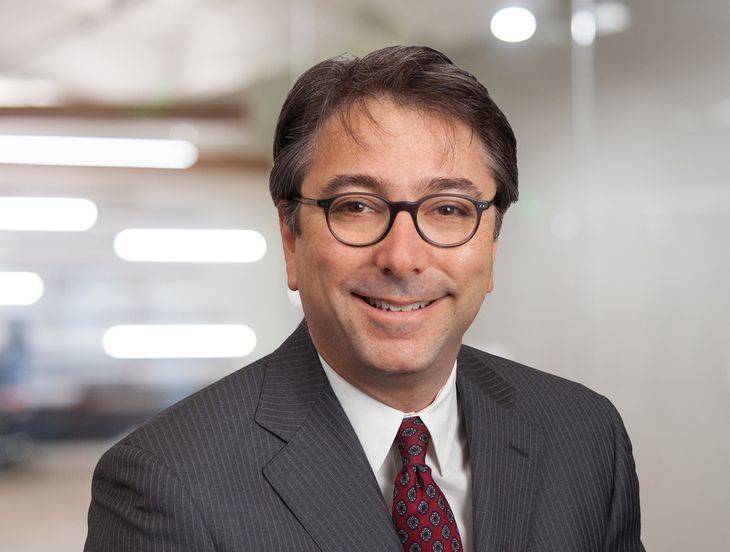The Top 17 Workplace Law Stories from May 2022
Insights
6.01.22
It’s hard to keep up with all the recent changes to labor and employment law. While the law always seems to evolve at a rapid pace, there have been an unprecedented number of changes for the past few years—and this past month was no exception. In fact, there were so many significant developments taking place during the past month that we were once again forced to expand our monthly summary well beyond the typical “Top 10” list. In order to make sure that you stay on top of the latest changes, here is a quick review of the Top 17 stories from last month that all employers need to know about:
- Federal Agencies Say Employer Use of AI and Hiring Algorithms May Lead to Disability Bias: 5 Key Takeaways
Employers can benefit from using software programs to streamline their hiring process, but federal agencies just sent a stern warning that relying on algorithms and artificial intelligence (AI) to make staffing decisions might unintentionally lead to discriminatory employment practices, including disability bias. If you incorporate AI tools into your selection process, a pair of guidance documents just issued by the Department of Justice (DOJ) and Equal Employment Opportunity Commission (EEOC) on May 12 suggest that you regularly monitor for bias and provide reasonable accommodations as needed. How can you utilize the latest technology without running afoul of the Americans with Disabilities Act (ADA)? Here are five key takeaways from the latest guidance.
- Supreme Court to Decide Whether Highly Compensated Supervisors Paid by the Day Should Get FLSA Overtime Pay
Employers may be shocked to learn that a supervisor who earns $200,000 a year could be entitled to overtime pay, but the Supreme Court might very well decide you could be on the hook for such payments in the near future. SCOTUS just agreed on May 2 to consider whether an oil rig supervisor who was paid a daily rate of at least $963 – rather than a weekly salary – was entitled to receive overtime premiums. While most employers know that employees must be paid on a “salary basis” to qualify for the Fair Labor Standards Act’s (FLSA’s) so-called white-collar exemptions, federal appeals courts disagree on what is meant by the term. The Supreme Court just agreed to wade into the debate by accepting review of the Helix Energy Solutions Group, Inc. v. Hewitt case. Employers in the energy, oil, and gas industries – which commonly use a daily rate pay model – will be closely watching, but any business that pays highly compensated employees on a daily or shift basis could be affected by the ultimate ruling. What do employers need to know as they wait for an answer from the Supreme Court?
- Top NLRB Lawyer Aims to Impose Union Recognition Through ‘Card Check’ Process
An employer can generally refuse a union’s demand for recognition and insist on a secret ballot vote, according to established federal labor law authority, but relying on this authority seems somewhat risky at the moment. For more than 50 years, a secret ballot election has been the only path to union representation if an employer refuses voluntarily recognition. In recent months, however, the National Labor Relations Board’s (NLRB’s) general counsel, Jennifer Abruzzo, has repeatedly confirmed that she wants to prohibit employers from refusing a demand for recognition unless they can show that they have a good faith basis for doing so. In doing so, Abruzzo wants to revive the 73-year-old Joy Silk doctrine, which is named for the 1949 NLRB decision In the Matter of Joy Silk Mills Inc. and United Textile Workers of America. Although the Joy Silk doctrine has not been resurrected yet, organized labor is aggressively asserting Joy Silk claims and trying to create a de facto “card check” process – through which a union would become the authorized representative as soon as a majority of employees in its desired bargaining unit sign electronic or paper authorization cards. What would a return to the Joy Silk doctrine mean for employers, and how can they prepare?
- California Supreme Court Says Payments for Missed Breaks are “Wages”: A 3-Step Action Plan for Employers
The California Supreme Court just ruled that any premiums paid to employees who are unable to take a full and timely meal or rest period should be considered “wages,” which not only triggers two key obligations on the part of California employers but also reemphasizes the importance of meal and rest break compliance. The May 23 decision in Naranjo v. Spectrum Security Services, Inc. means that any premiums you pay in this regard must be (1) reported on statutorily required wage statements during employment and (2) paid within the statutory deadlines when an employee separates employment. This Insight provides you with a summary of what happened and provides a three-step action plan for employers moving forward.
- Flexible I-9 Rules for Remote Workers Extended Through October
In a surprise move, federal immigration officials recently announced that they will permit remote review of new hires’ I-9 documentation for those who work exclusively in a remote setting due to COVID-19 related precautions through October 31. According to the announcement, U.S. Immigration and Customs Enforcement (ICE) has said that the requirement that employers inspect employees’ Form I-9 identity and employment eligibility documentation in-person applies only to those employees who physically report to work at a company location on any regular, consistent, or predictable basis for at least the next six months. Could this continued flexibility be a welcome sign of things to come?
- What Businesses Need to Know as DOL Seeks to Kill Trump-Era Gig Economy Rule (Again)
The saga continues for companies that rely on a gig economy business model as the federal government just challenged a court order that recently restored a Trump-era rule that makes it easier to classify workers as independent contractors. On May 13, the Department of Labor (DOL) filed a notice of appeal with the federal district court in Texas that reinstated the rule. In 2021, the Biden administration first delayed then ultimately withdrew the rule. But the DOL failed to give the public a meaningful opportunity to comment on its decision to delay the Trump administration’s rule or consider possible alternatives before rescinding it, according to the district court’s March 14 order. For now, the Trump-era rule remains in effect – but that could change at the drop of a hat as the lawsuit works its way through the courts. What do you need to know as the litigation plays out?
- Colorado Set to Severely Limit Non-Competes and Other Restrictive Covenants: A 5-Step Action Plan for Employers
Colorado lawmakers just passed a law on May 10 that will bring dramatic change to the non-compete landscape by significantly limiting the circumstances under which restrictive covenants may be used – virtually ending the practice of most non-competes in the state – and empowering workers and the Attorney General to punish violations through lawsuits for damages, statutory penalties, and attorneys’ fees. Governor Polis is all but certain to sign the non-compete reform bill that will then become effective 90 days after the legislature adjourns – which means the law should be in place by early August 2022. What do Colorado employers need to know about this significant development, and what are the five crucial steps you should take to prepare for the dawning of this new day?
- U.S. Women’s Soccer to Receive Equal Pay in Historic New Collective Bargaining Agreement
In an unprecedented move, the U.S. Men’s and Women’s National Soccer Teams agreed to joint collective bargaining agreements with the U.S. Soccer Federation (USSF) on May 18 which guarantees equal pay for both teams. Not only will the teams receive identical performance-based bonuses and appearance fees, the historic nature of the deal comes from the pooling and equal distribution of all prize money earned by each team. This multi-million-dollar deal could have ramifications in competitive sports and beyond as organizations grapple with the demands for equal pay. It also provides lessons for all employers about the steps you should consider when it comes to pay equity compliance.
- Labor Chief’s Renewed Focus on Workplace Safety Mean’s FP’s OSHA Inspections Tracker More Important Than Ever
When asked at a recent Congressional hearing about which subagency at the Department of Labor would be given priority funding in the near future, the head of the DOL had a quick and definitive answer: “OSHA.” Marty Walsh’s pronouncement at the May 17 House Subcommittee hearing sends the clearest signal yet that employers across all industries need to double down on workplace safety and prioritize compliance, as you can expect an increased focus by federal officials throughout the rest of the year and into 2023. Now more than ever, you should take advantage of FP’s first-of-its-kind OSHA Inspections Tracker, allowing you to examine the up-to-the-minute state of workplace safety inspections in a detailed manner. By clicking here and maneuvering around the map and accompanying data lists, you can determine the likelihood of your business being visited by OSHA inspectors based on your location, industry, and company size.
- Employers Breathe Sigh of Relief as Immigration Officials Extend Employment Authorization for Many Workers
Thanks to a new rule published on May 4, a broad group of nonimmigrant workers waiting for their employment authorization cards will have their temporary work authorizations extended for 540 days from their expiration date – an incredibly welcome development for employers in dire need of qualified help. The Department of Homeland Security’s final rule will help prevent eligible renewal applicants from experiencing a lapse in employment authorization or documentation while their applications remain pending. What do you need to know about this promising development?
- Delaware Joins Trend to Provide Paid Family Leave: What Employers Need to Know
Governor John Carney signed a bill on May 10 making Delaware the 11th state to create a paid family leave program for eligible employees. Covered businesses will need to make payroll contributions beginning January 1, 2025, and eligible employees can take up to 12 weeks of job-protected leave starting January 1, 2026. Employers have time to prepare, but you should start planning now. What do you need to know about the new law?
- Massachusetts High Court Hears Argument on Gig Driver Ballot Question
As we wrote back in January, Massachusetts is in the midst of a multi-fora battle over whether gig drivers (those using app-based platforms such as Uber, Lyft, DoorDash, and Instacart) should be treated as employees or independent contractors. One of those fights currently centers on whether Massachusetts voters will be given the opportunity to vote on the issue through a November 2022 ballot question. The state Supreme Judicial Court heard argument on that issue on May 4 – and we should know the outcome of this fight very soon.
- Federal Appeals Court Sides with Employer in Job Applicant’s Background Check Suit: 3 Steps to Avoid Similar Claims
A job applicant who didn’t disclose a felony conviction can’t sue her prospective employer under a federal background-check law for failing to provide proper notice before rescinding her offer, according to a recent decision from a federal appeals court. The job applicant didn’t claim the background report was wrong. Instead, she argued that she should have been given a chance to explain the conviction before the offer was withdrawn. In Schumacher v. SC Data Center, Inc., the 8th U.S. Circuit Court of Appeals ruled in favor of the employer even though it technically violated the Fair Credit Reporting Act (FCRA). The act doesn’t give applicants the right to explain negative but accurate information in a consumer report before the employer can make an adverse employment decision, the court said in a May 3 decision. Although the ruling is good news for employers, you should take the following three steps to comply with FCRA’s notice requirements and avoid similar claims.
- 10 Takeaways as New Jersey Set to Drastically Limit Non-Competes and Other Restrictive Covenants
The New Jersey legislature is currently considering legislation that would add the state to the growing list of jurisdictions that have significantly limited the scope and enforceability of non-competition agreements and other restrictive covenants. Among other things, the recently introduced Assembly Bill 3715 (AB 3715) – which was just reported favorably by a committee of state lawmakers on May 19 – would add a number of roadblocks that would limit the ability of employers to engage in common business practices and require additional procedural steps for businesses. What are the 10 biggest takeaways you need to know about this pending legislation?
- New Senate Bill Would Protect Crypto 401(k) Investments
After federal officials fired a shot across the bow of the crypto world by strongly criticizing the practice of including cryptocurrency as a 401(k) investment option, a new proposal introduced in the U.S. Senate fired right back and aims to protect such a right. The Financial Freedom Act (S. 4147), introduced on May 5 by Senator Tommy Tuberville (R-AL), would prohibit the Department of Labor from restricting the types of investments that workers can invest in through their self-directed brokerage accounts like 401(k)s – and would clear the path for retirement investors to put some cryptocurrency into their nest egg. What do employers need to know about this latest development?
- USCIS Expands Premium Processing in Further Effort to Reduce Immigration Backlog and Processing Delays
Since the start of the COVID-19 pandemic, processing delays have plagued the USCIS and frustrated many employers and foreign nationals applying for and extending their visas. At its peak in January 2022, the USCIS had a backlog of over 5 million cases. There’s good news, however. During a May 24 stakeholder webinar, federal immigration officials promoted various initiatives aimed at reducing the backlog and increasing capacity, including hiring additional staff, increasing overtime, allowing certain nonimmigrants to re-use prior biometric appointments, increasing virtual interviews, and expanding premium processing.
- California Continues the March Towards Blockchain with Sweeping Executive Order
California just took a huge leap forward in its innovation efforts when Governor Gavin Newsom issued an Executive Order establishing it as the first state in the nation to begin creating a “comprehensive and harmonized” framework for blockchain technology (including cryptocurrency) to thrive. This May 4 Order follows recent legislative proposals seeking to further adopt the use of blockchain technology in state government and is yet another example of how California is on the cutting edge when it comes to this nascent technology. But what does this Order mean for employers today – and tomorrow?
We will continue to monitor developments related to all aspects of workplace law. Make sure you are subscribed to Fisher Phillips’ Insight system to get the most up-to-date information. If you have questions, contact your Fisher Phillips attorney.
Related People
-
- Phillip C. Bauknight
- Partner
-
- Steven M. Bernstein
- Regional Managing Partner and Labor Relations Group Co-Chair
-
- Raeann Burgo
- Partner
-
- Kathleen McLeod Caminiti
- Partner and Co-Chair, Wage and Hour Practice Group
-
- Tatiana S. Chiu
- Associate
-
- Brian J. Coughlin
- Partner
-
- Myra K. Creighton
- Partner
-
- Jeffrey M. Csercsevits
- Partner
-
- Patrick M. Dalin
- Partner
-
- Benjamin M. Ebbink
- Partner
-
- Scott Fanning
- Partner
-
- Jeffrey A. Fritz
- Partner
-
- Michael R. Greco
- Regional Managing Partner
-
- Marty Heller
- Partner
-
- Richard A. Millisor
- Regional Managing Partner
-
- Joshua D. Nadreau
- Regional Managing Partner and Vice Chair, Labor Relations Group
-
- Lisa Nagele-Piazza
- Lead Content Counsel
-
- Angelica M. Ochoa
- Partner
-
- Jack O’Connor
- Associate
-
- Ashton M. Riley
- Partner
-
- David C. Roth
- Partner
-
- Hannah Sweiss
- Partner
-
- Boris Sorsher
- Partner
-
- Shanon R. Stevenson
- Partner
-
- Travis W. Vance
- Regional Managing Partner
-
- Sarah Wieselthier
- Partner
Service Focus
- Counseling and Advice
- Employee Benefits and Tax
- Employee Defection and Trade Secrets
- Employee Leaves and Accommodations
- Employment Discrimination and Harassment
- FCRA and Background Screening
- Immigration
- Labor Relations
- Litigation and Trials
- Pay Equity and Transparency
- Wage and Hour
- Workplace Safety and Catastrophe Management


























